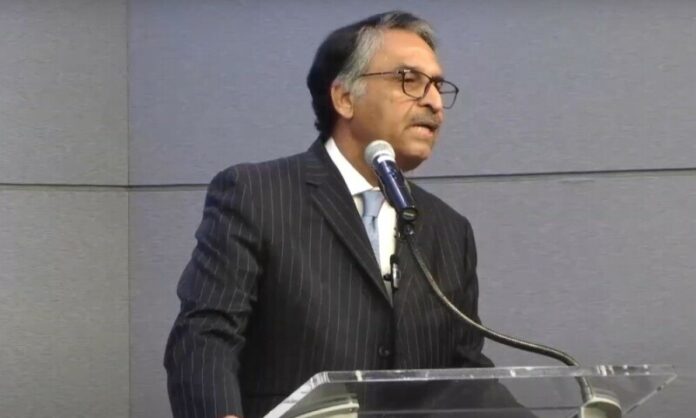Pakistan’s Caretaker Foreign Minister, Jalil Abbas Jilani, has officially confirmed the arrest of approximately 200 individuals believed to be associated with the banned Tehreek-i-Taliban Pakistan (TTP) by the Afghan government. This confirmation comes following media reports, citing unnamed Pakistani officials, which suggested that the Taliban regime in Kabul had apprehended suspected militants responsible for cross-border attacks in Pakistan.
Addressing a press conference on September 28, shortly after his return from New York, Minister Jilani provided insights into the situation. He disclosed that the interim Afghan government had duly informed Pakistan regarding these arrests. Importantly, he emphasized that Pakistan would not demand the extradition of these individuals if they were Afghan nationals. Instead, the Pakistani government seeks decisive action against them.
Minister Jilani expressed optimism that the Afghan government would uphold its commitment to the international community by preventing the use of its territory for terrorist activities targeting any nation. He underscored the Afghan government’s responsibility to thwart such attacks and take resolute measures against terrorists operating from Afghan soil.
Furthermore, during the press conference, Minister Jilani unequivocally ruled out any intention to recognize Israel, even if other Muslim nations were to do so. He reaffirmed Pakistan’s steadfast stance on the Israel-Palestine conflict, emphasizing the nation’s support for a viable and independent Palestine, with pre-1967 borders and Jerusalem as its capital. He stated, “May it be Palestine or Kashmir, Pakistan has always called for honoring people’s right to self-determination.”
Addressing concerns surrounding the ongoing operation against “illegal immigrants” in Pakistan, Minister Jilani clarified that this action was not solely targeted at Afghan nationals. He highlighted that the federal cabinet had approved a comprehensive policy aimed at repatriating all illegal foreign nationals, regardless of their nationality. However, he explicitly mentioned that registered Afghan refugees residing in Pakistan would not be impacted by these measures.
In response to speculations about the China-Pakistan Economic Corridor (CPEC), Minister Jilani categorically dismissed any notion of its rollback. He emphasized that Pakistan had entered the second phase of CPEC, which encompasses various areas such as railway upgrades, agricultural initiatives, and technology cooperation. He underscored the nation’s commitment to the project, assuring that the coming years would witness continued progress in the implementation of CPEC projects.
Addressing recent tensions between India and Canada, particularly regarding the killing of a Sikh activist, Minister Jilani highlighted Pakistan’s consistent stance against India’s alleged involvement in acts of assassination, espionage, and terrorism across South Asia and globally. He also drew attention to human rights violations in Indian-administered Kashmir and emphasized that peace in South Asia would remain elusive until the Kashmir issue was resolved in accordance with UN Security Council resolutions.
Responding to concerns about Pakistani cricket fans being denied visas for international events hosted by India, Minister Jilani emphasized that the International Cricket Council’s (ICC) regulations bound host nations to permit spectators from participating countries. He urged the Pakistan Cricket Board to engage actively with the Board of Control for Cricket in India to ensure the implementation of ICC rules and the admission of Pakistani cricket enthusiasts.
Caretaker Foreign Minister Jalil Abbas Jilani’s statements shed light on several critical issues, including the arrest of alleged TTP fighters in Afghanistan, Pakistan’s stance on Israel, immigration operations, the status of CPEC projects, and regional diplomatic matters. His remarks underscore Pakistan’s commitment to regional stability and adherence to international norms and regulations.


